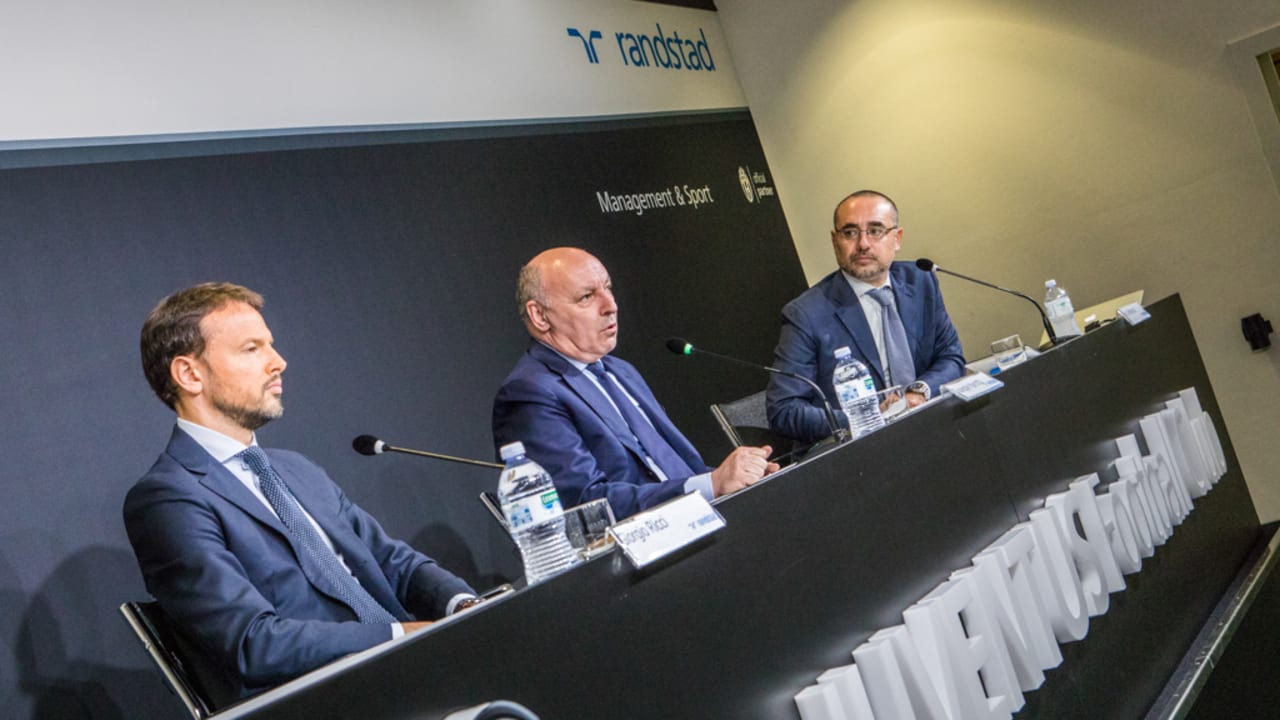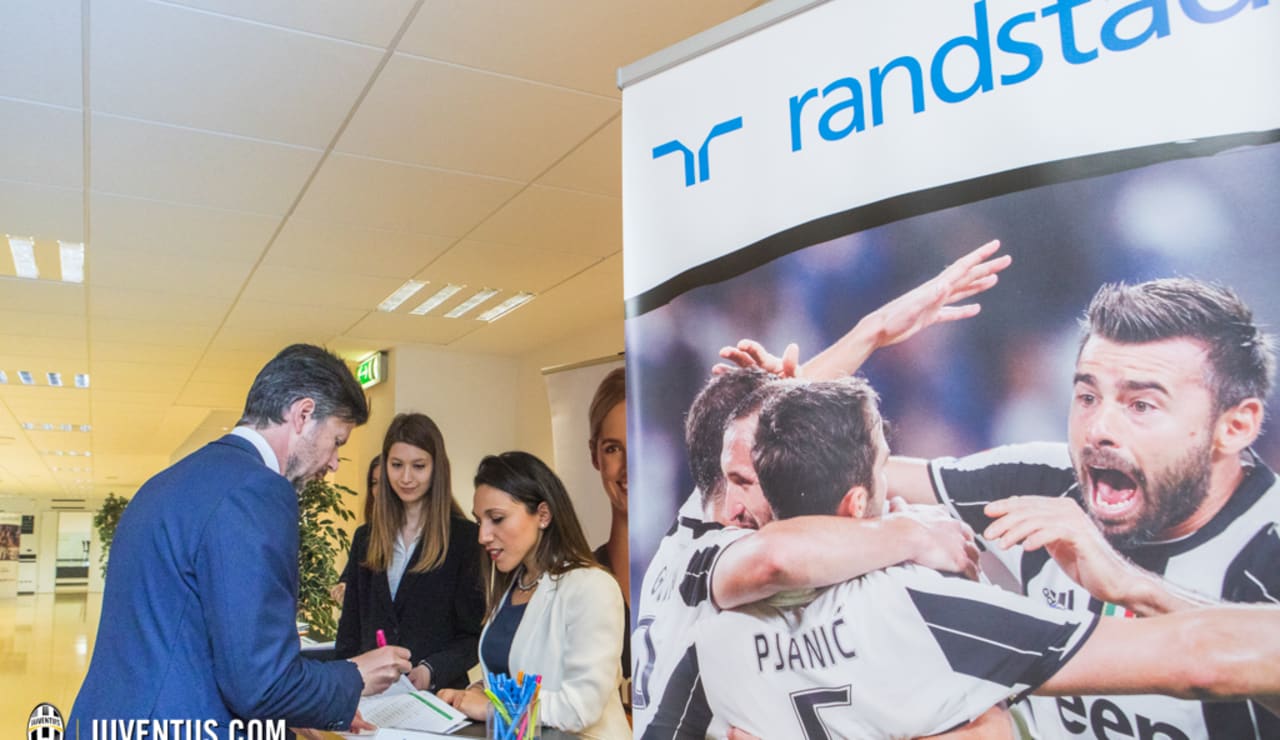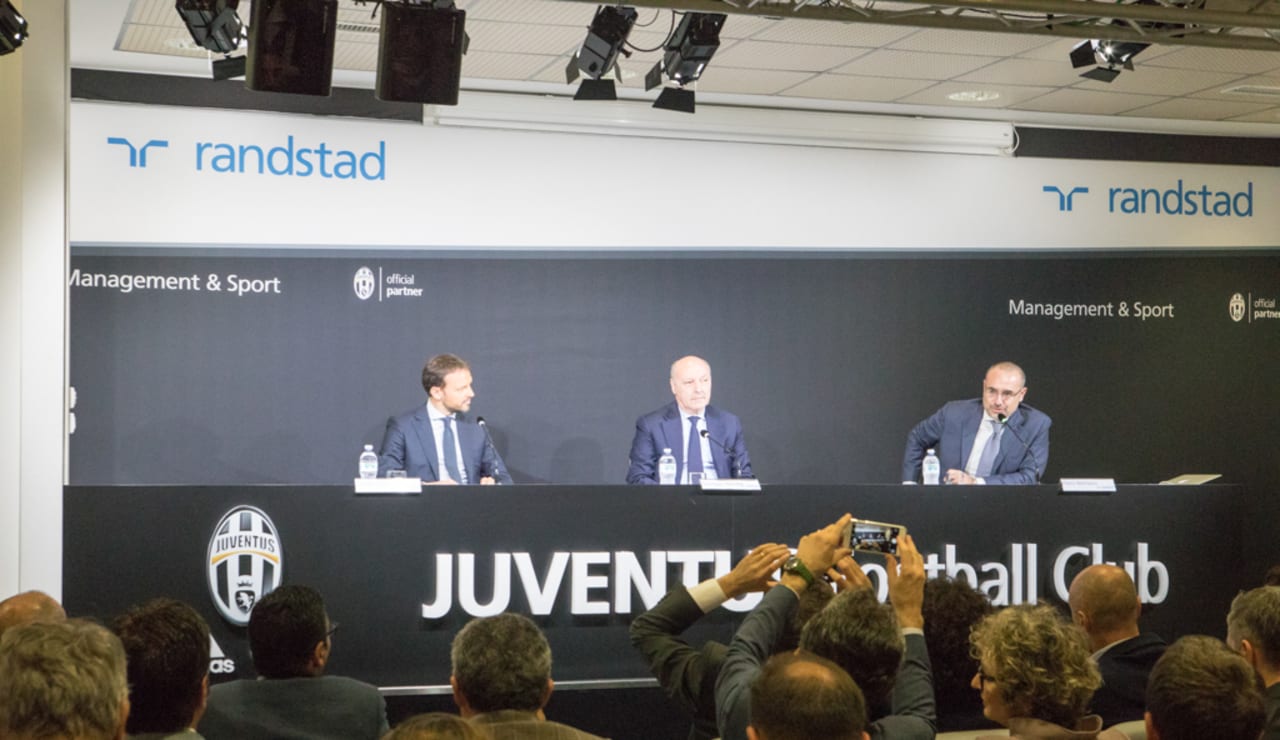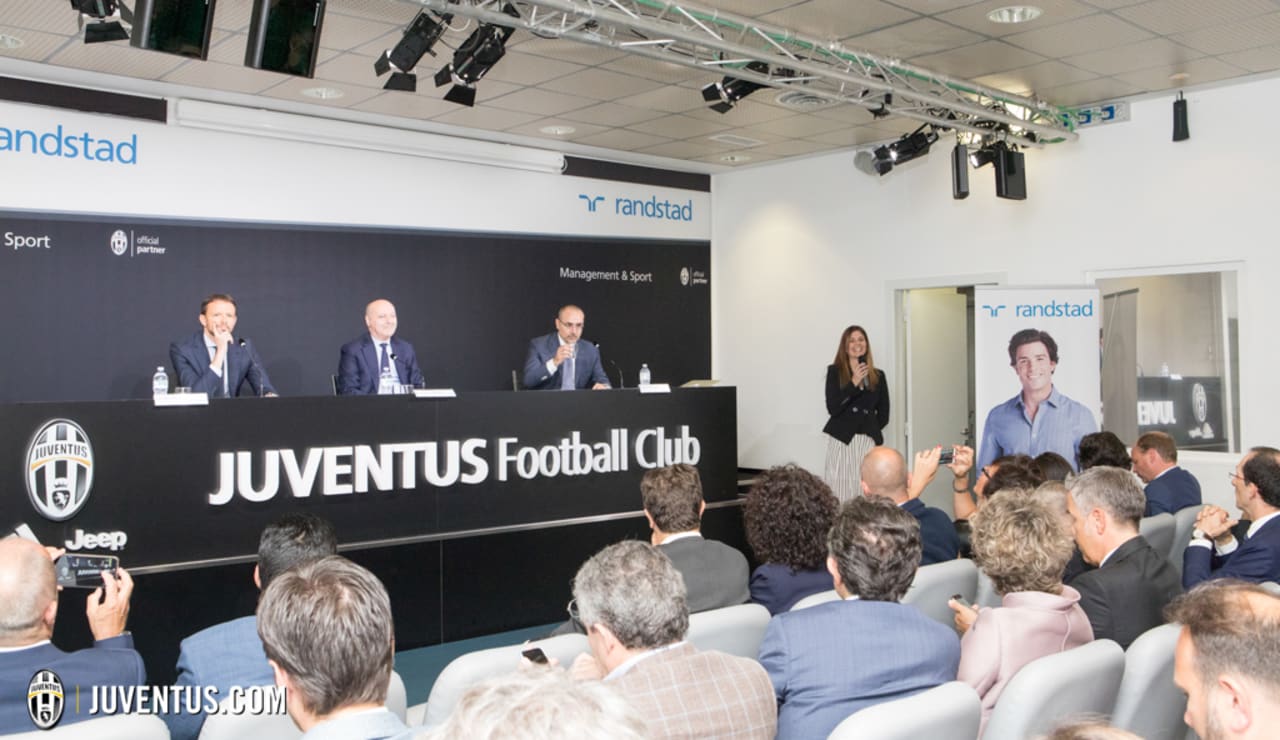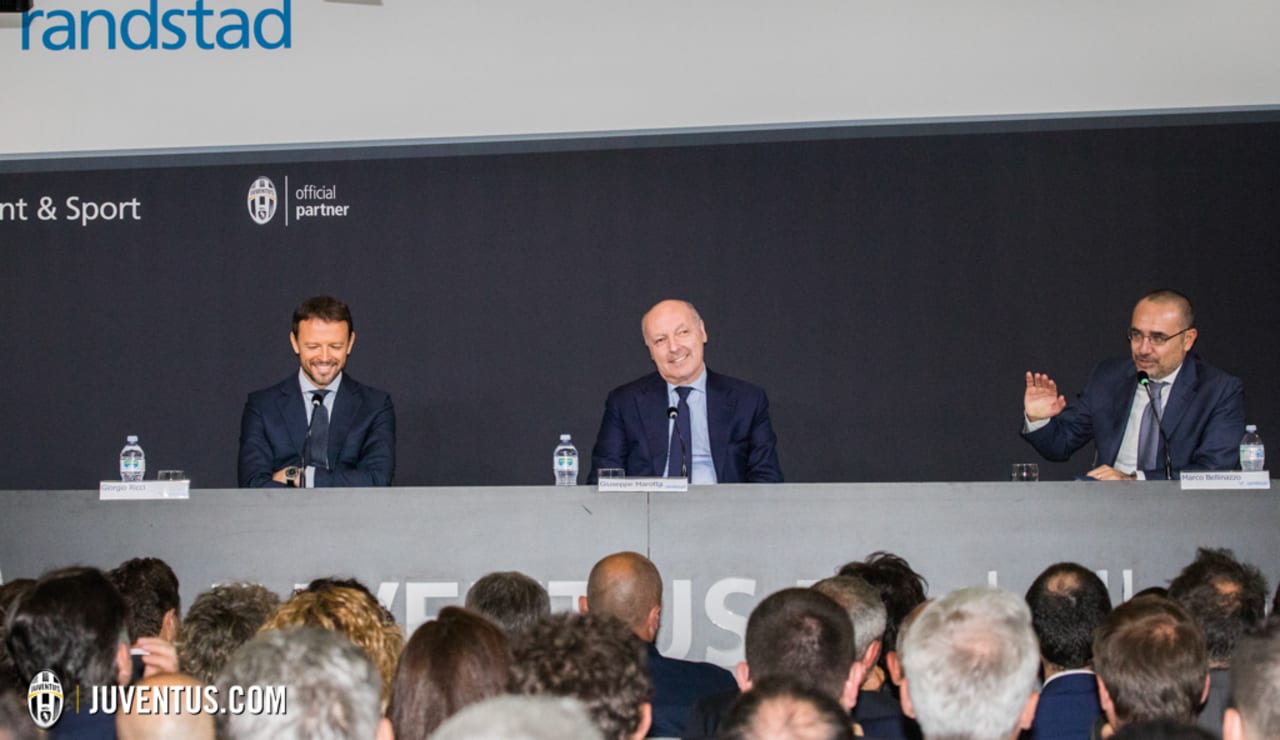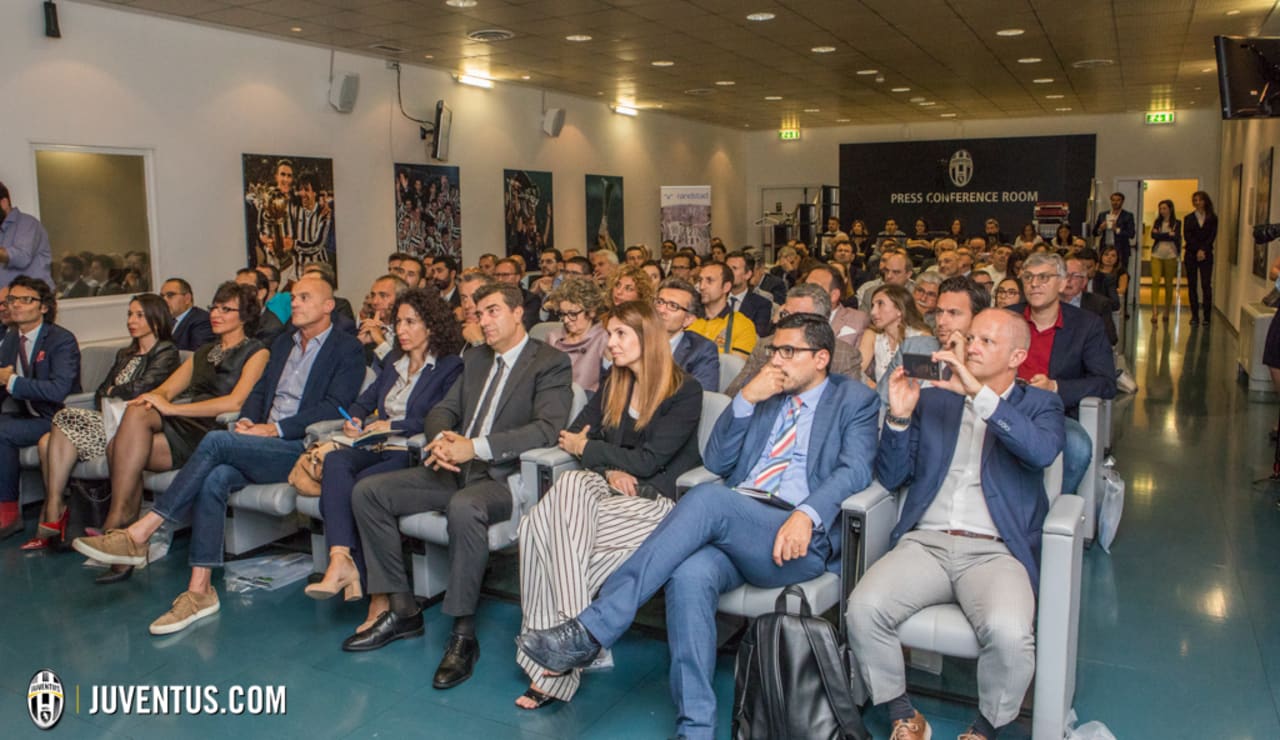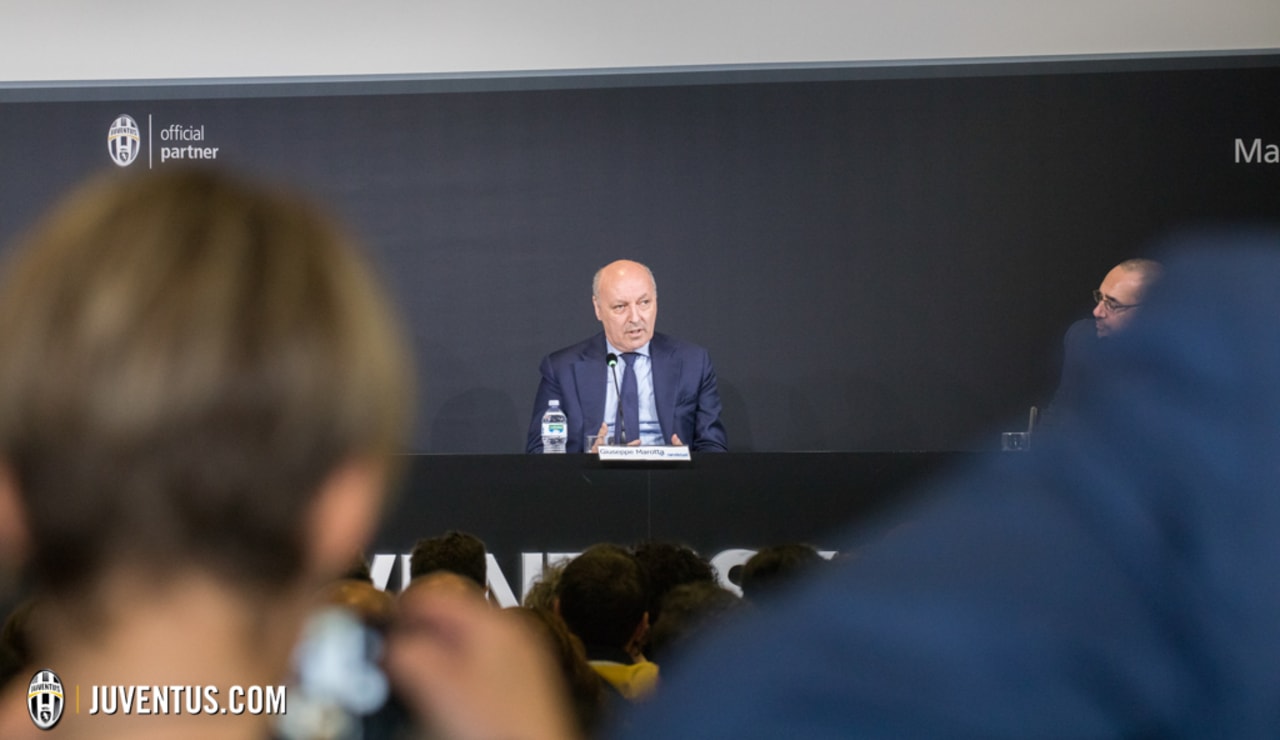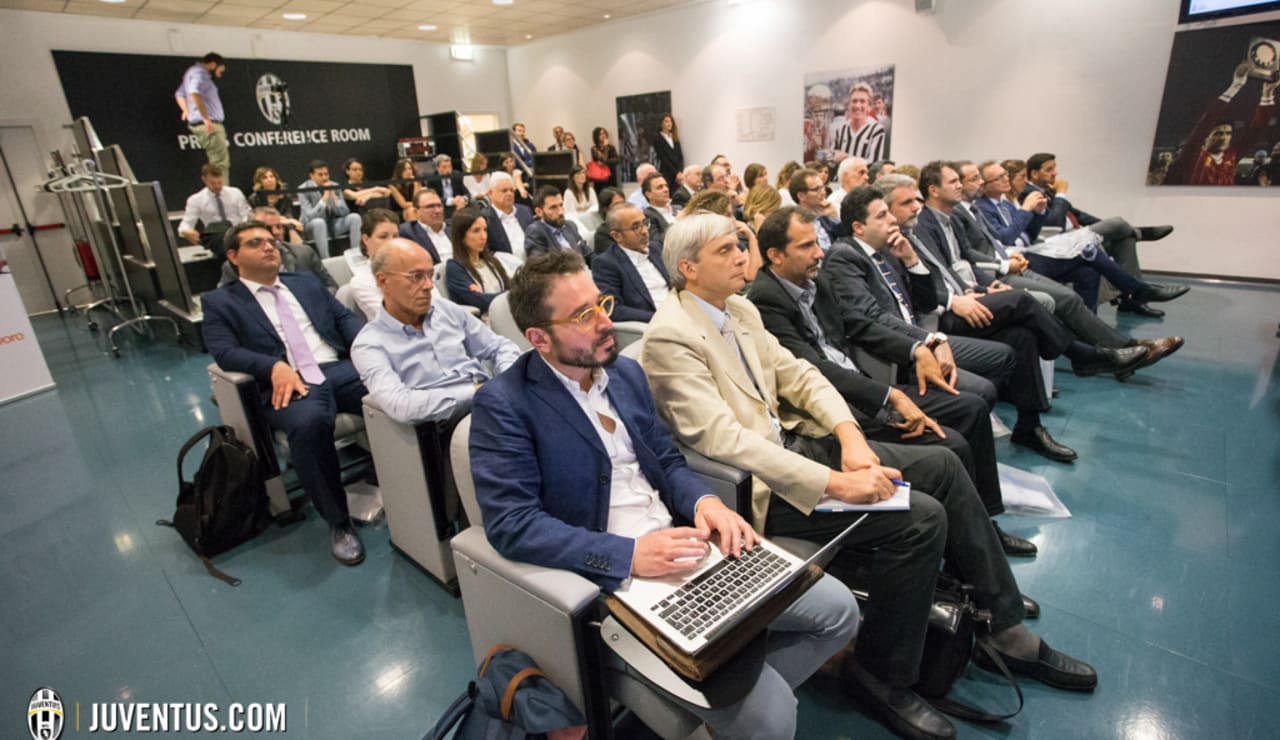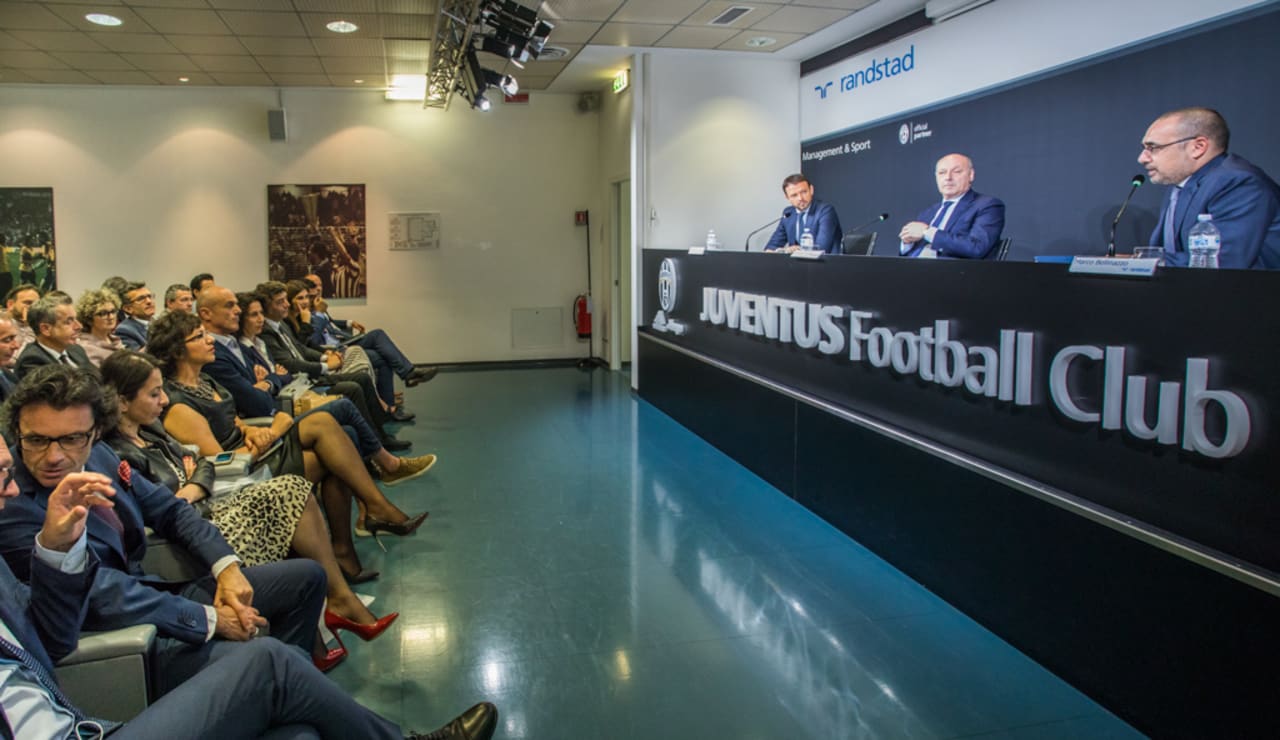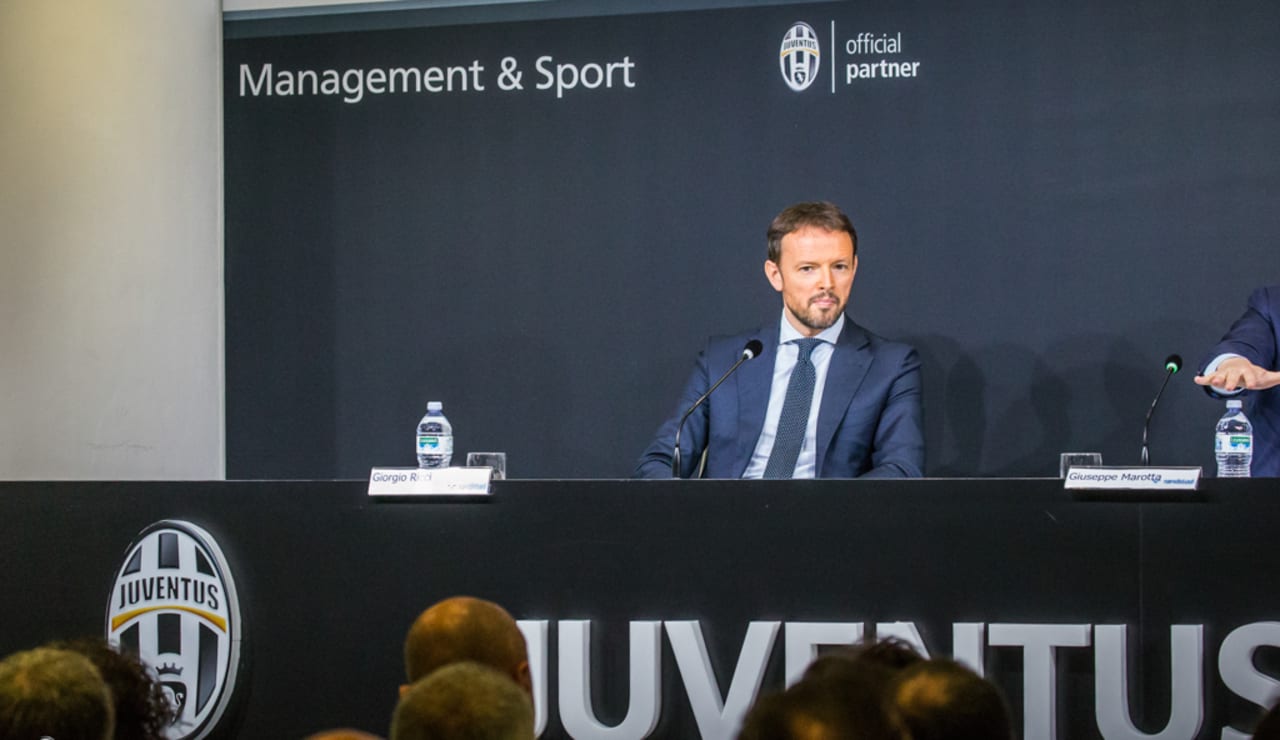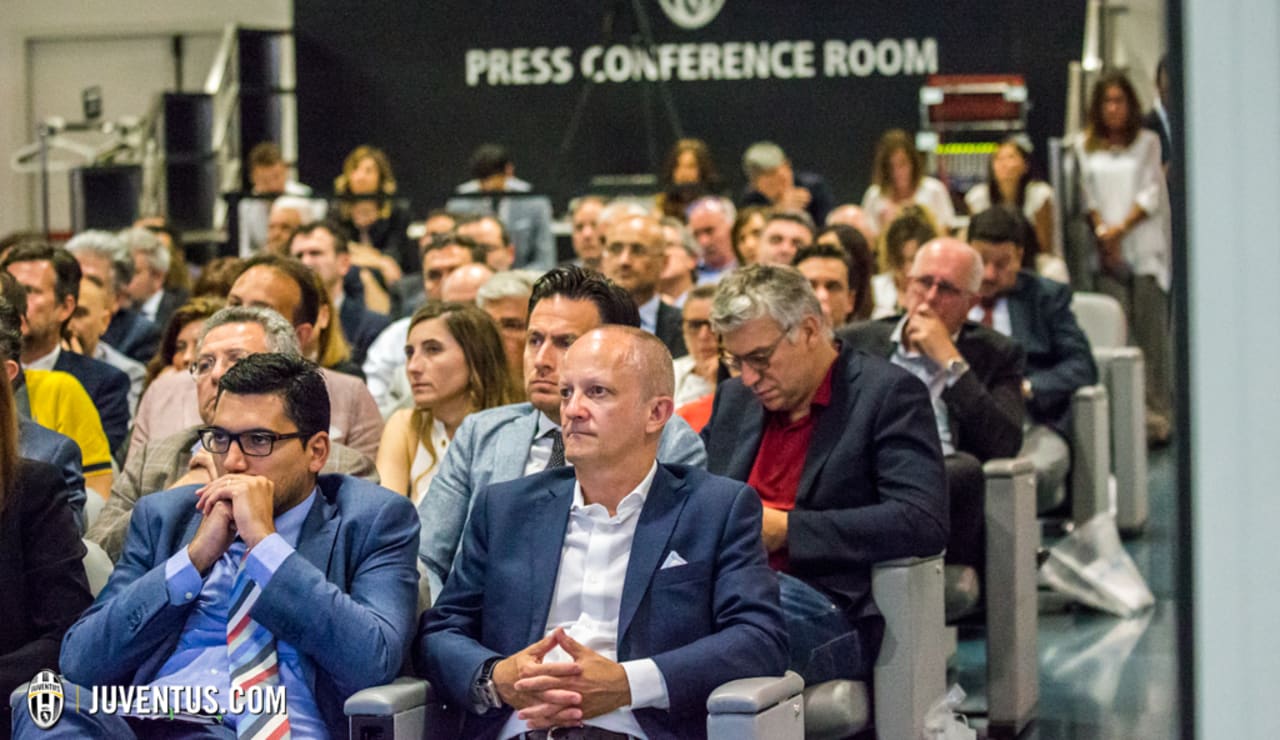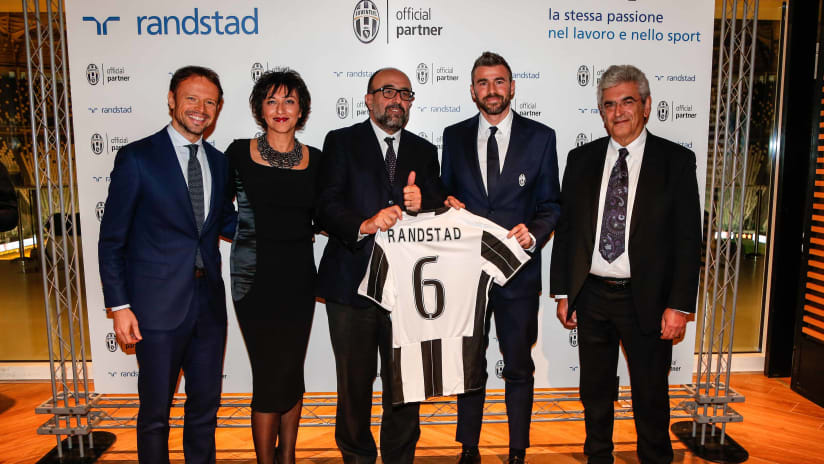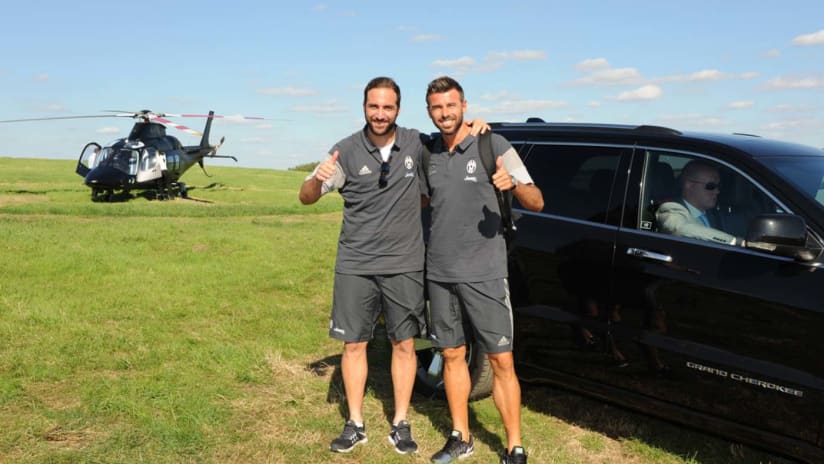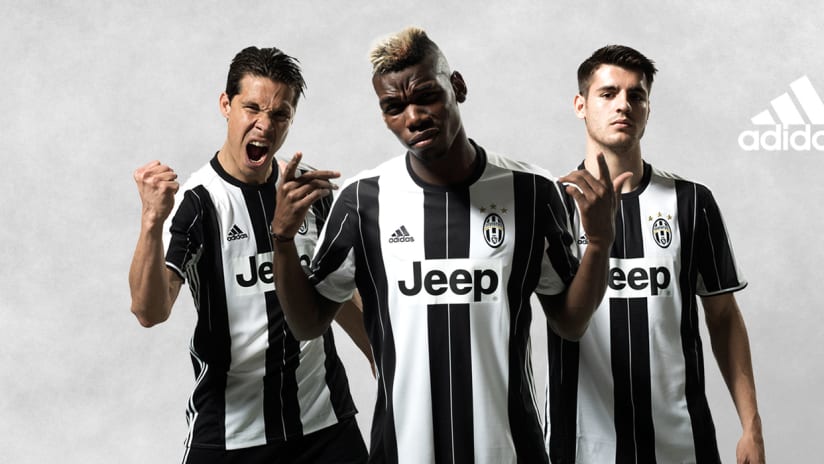25 May 2017
What are the specific challenges faced by management figures in the world of sport when it comes to balancing finances and contracts with people and relationships? And what is the 'Juventus style' in terms of business management on and off the pitch?
These were some of the questions answered at a workshop run by Randstad at Juventus Stadium on Thursday. Speaking on behalf of the club were Giuseppe Marotta, CEO & General Manager Sport, and Giorgio Ricci, co-chief Revenue Officer & Head of Global Partnerships.
During the event, moderated by Il Sole 24 Ore journalist Marco Bellinazzo, the Bianconeri officials fielded a series of questions on management style, organisation, strategic thinking and human relations in football and business. The audience was made up of managers and entrepreneurs selected by Randstad.
"Football is a highly complex phenomenon, a metaphor for life," explained Juventus CEO Giuseppe Marotta. "To run a team well, you need people with great expertise, autonomy and responsibility.
"Expertise is indispensable. If you want to create a successful model, you need first-rate personnel with clearly defined roles.
"Juventus are a team that extends far beyond the players on the pitch: behind them is an invisible squad of almost 500 employees striving to create the ideal conditions for the footballers to do their jobs as best as possible."
Marotta went on to discuss the role of the head coach and his relationship with club management.
"The coach is the man in charge of the football side, the leader of the group, and it's important for us to acknowledge that. Any interference from the management in player relations could cause problems. The dressing room is a sacred place – the coach's territory."
Among the questions from the crowd were several about Marotta's relationship with president Andrea Agnelli.
"The president is the number one Juventus fan. He grew up in the dressing room and he's a real football man with extensive expertise.
"He had the foresight to create a winning model by delegating wisely, respecting the roles of those working at the club and backing them in their decisions."
Giorgio Ricci spoke about the business side and the expansion of the Juventus brand, especially abroad.
"A whole world has literally opened up in the last few years and we've had to adapt our set-up to take advantage of the new opportunities offered outside Europe.
"Juventus opted to internalise and work on what is almost a proprietary business model, managing sponsorships, tour capitalisation, merchandising and the digital area autonomously.
"Nowadays Juve can attract people and – within our club – teach them a management model applied to sports business, forming managers in the process.”
Ricci also commented on the club's commercial potential and its new logo.
“Six years of success in Italy have created the fanbase of the future. Our popularity among kids – the fans of the future – has grown considerably in recent years but we don't want to rest on our laurels.
“Our new visual identity represents the world that lies before us: we want to increase the number of ways that fans can engage with the Juventus world, augment the entertainment experience and not just sit on our domestic dominance but keep re-inventing ourselves, focusing on the future."

